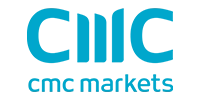Table Of Contents
- Best MetaTrader FOREX Brokers in 2026
- What is MetaTrader?
- Do I Need a Broker to Use MetaTrader?
- Is MetaTrader Safe?
- Regulation and Licensing
- Leverage
- Stop out
- Why MetaTrader’s Tools and Features Stand Out
- How Can I Connect My Account to MetaTrader?
- How To Use MetaTrader
- Video Explaining How to Use MT4 and MT5
- How Does MetaTrader Compare with Other Third-Party Trading Platforms?
- cTrader
- NinjaTrader
- ProRealTime
- What Is the Difference Between MT4 and MT5?
- Tradable Assets and Instruments
- What is the Best Broker for MT4?
- What is the Best Broker for MT5?
- Does MetaTrader Need a Subscription?
- Does MetaTrader Add Additional Costs to My Positions?
- Does MetaTrader Support Copy Trading?
- Does MetaTrader Support Bot Trading?
- Who is Arincen and What do We do?
- The Bottom Line
- Methodology
Best MetaTrader FOREX Brokers In 2026
With many years of meticulous FOREX broker testing, Arincen stands out as a voice of authority. Our analyses, shaped by exhaustive data collection, are trusted by many. Each year, we gather 120 data points from more than 100 brokers. Our team of more than 20 people collaborate extensively to produce high-quality broker reviews like this one. For a detailed explanation of how we test brokers, navigate to the bottom of this article.
Note: We earn money by selling ads, placements, or through partnerships with some companies we have agreements with, learn more.
Many successful FOREX trading careers have been forged using MetaTrader's two flagship products - MetaTrader 4 (MT4) and MetaTrader 5 (MT5). These two industry stalwarts are the backbone of the FOREX trading world, and for this reason, many new traders want to find out which MetaTrader brokers are the best.
Both these platforms facilitate access to the retail FOREX trading world. MT4 was originally launched as a FOREX-leaning product, while MT5 was designed as a more comprehensive trading platform. However, both products have significant overlap in what they offer. Each contains a wide range of trading tools, including charts, technical indicators, and order management features.
With excellent access to markets, MT4 and MT5 allow new traders to trade in a wide range of financial markets. This includes not only FOREX, for which they are well known, but also indices, commodities, and cryptocurrencies. Traders can easily diversify their portfolios and take advantage of the financial assets out there.
In this article, we will explain how to choose the best FOREX brokers when trading MT4 and MT5. After a stringent research exercise, here is our list of the Best MetaTrader Brokers:
Best MetaTrader FOREX Brokers in 2026
ICM - Capital 91.10: Best Deposit and Withdrawal Broker
Tradeview - 90.00: Trusted broker that offers very low trading costs as well as comprehensive financial literacy materials for its clients.
XTB - 85.55: Best Customer Service Broker
IG - 85.45: Best Regulations Broker plus Convenient Platform
Saxo Bank - 80.09: Excellent Private Trading Platform
CMC Markets - 80.07: More than 9,000 Assets
ThinkMarkets - 80.05: Aimed at the Audience of Traders

ICM capital
ICM Capital is a UK-origin broker that operates worldwide. The firm provides access to diverse trading products, including FOREX, commodities, futures, and indices. ICM offers a secure and efficient trading environment by combining advanced technology with deep liquidity. The company prides itself on delivering high liquidity, tight spreads, mobile trading, and advanced technical analysis.
Why we picked ICM Capital
For its robust regulatory framework and global oversight. Its presence across multiple jurisdictions demonstrates a genuine commitment to investor protection. This foundation makes it a dependable choice for both new and seasoned traders.
| Broker Evaluation | 9.11 |
| Regulations | FCA |
| Minimum Deposit | $200 |
| Islamic Account | yes |
| Payment Methods | Bank transfer, credit card, Electronic Banks, Crypto |
| Main Branch | London |
| Customer Service | Market Opening Hours |
| Demo Account | Yes |
| Trading Platforms | MT4, MT5, C TRADER, Web Platform |
Pros
-
Segregated client funds.
-
Regulated by the UK’s FCA.
-
Long trading history from 2009.
-
More than 300,000 traders, showing trust.
-
Decent funding options.
-
No swaps.
-
MetaTrader4 (MT4) desktop and mobile download.
-
Competitive spreads
-
ECN spreads starting from zero pips.
-
Fast execution and no-requotes.
Cons
-
No proprietary platform.
-
No US services.
-
Limited cryptocurrency offerings.
-
Inactivity fees which deter casual traders.
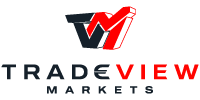
Tradeview
Tradeview Markets, the parent company of Tradeview Forex, was established in 2004 and is headquartered in the Cayman Islands. It is committed to offering a broad and accessible trading environment through ECN trading with direct access to dozens of banks and prime liquidity providers, ensuring tight spreads. The broker offers access to a wide range of financial instruments, including FOREX, indices, stocks, cryptocurrencies, and commodities.
Why we chose Tradeview
Our choice was influenced by this broker’s transparent fee structure and competitive pricing, with low spreads and clear cost disclosures. Traders benefit from predictable pricing without hidden charges. Cost efficiency is a crucial advantage in high-frequency and active trading environments.
| Broker Evaluation | 10.00 |
| Regulations | SCA |
| Minimum Deposit | $0 |
| Islamic Account | Yes |
| Payment Methods | Bank Transfer, Credit Cards, Crypto, Electronic banks, local deposits |
| Main Branch | New York, United States of America |
| Customer Service | |
| Demo Account | Yes |
| Trading Platforms | Metatrader 4, Metatrader 5, cTrader, API/FIX |
Pros
-
Variety of trading platforms, such as MT4, MT5, cTrader, and Currenex, catering to different trading preferences and strategies.
-
Provides ECN trading through its innovative Liquidity Connector®, granting direct access to over 50 banks and liquidity providers. Offers tight spreads starting from 0 pips.
-
A low minimum deposit of only $0 is required to start trading, making it accessible to a wide range of traders.
-
Offers a broad range of financial instruments, including FOREX, indices, stocks, cryptocurrencies, and commodities, thus catering to diverse trading interests.
-
Offers educational materials and a demo account, suitable for both beginners and experienced traders looking to refine their strategies.
-
Supports automated trading through the use of Expert Advisors (EA) on MT4 and MT5 platforms.
-
Regulated by CIMA, MFSA, and will soon be regulated by the UK’s Financial Conduct Authority (FCA).
-
Offers global customer service in multiple languages, catering to international traders.
-
Offers competitive leverage up to 400:1.
-
Charges no fees for deposits, making it cost-effective for traders to fund their accounts.
Cons
-
While regulated by CIMA and the MFSA, the broker is still in the final stages of becoming regulated by the tier-one FCA.
-
This means, unfortunately, that the broker currently has no way of offering compensation to affected traders if the broker goes bust. Of course, once FCA regulation is obtained, it will be mandatory for the broker to be part of the Financial Services Compensation Scheme (FSCS) where you could be entitled to compensation of up to £85,000.
-
Trades on the Innovative Liquidity Connector® account are subject to commission charges, which may add to trading costs.
-
Lacks a dedicated mobile app, relying instead on the mobile versions of its available trading platforms.
-
While offering high leverage up to 400:1 can be an advantage, it also introduces significant risks, especially for new traders.

XTB
XTB is a well-regarded broker known for its low costs, extensive asset selection, and advanced trading tools. Founded in 2002 in Poland, it has created a proprietary xStation 5 platform that offers robust features like real-time performance stats, sentiment analysis, and heat mapping. XTB's educational resources are comprehensive, catering to all skill levels with video tutorials, guides, and an accessible Trading Academy. XTB is an excellent choice for cost-conscious traders looking for diverse investment options and high-quality support.
Why we chose XTB
We chose this broker for its responsive and multilingual customer support, available across channels when assistance is needed most. Quick, professional responses reduce friction and build trader confidence. Support quality often reflects overall service reliability.
| Broker Evaluation | 8.55 |
| Regulations | FCA |
| Minimum Deposit | 0$ |
| Islamic Account | yes |
| Payment Methods | Bank transfer, Credit Card, Electronic Banks |
| Main Branch | United Kingdom |
| Customer Service | Market Opening Hours |
| Demo Account | Yes |
| Trading Platforms | MT4, xStation |
Pros
-
20-year history of operation.
-
Regulated by the FCA (UK) and CySEC in Cyprus.
-
Globally recognized, having won multiple awards.
-
Some of the lowest FOREX spreads in the market.
-
Offers protection for client accounts.
-
Emphasis on customer service.
-
Excellent support, as well as learning and research tools.
Cons
-
Does not accept US clients.
-
Number of instruments offered is average-sized.
-
No GSLO.
-
No back-testing or automated trading capabilities.
-
No social trading.

IG Group
IG Group is a highly regarded publicly traded broker that is licensed by 10 regulatory bodies, including the FCA, in its home base of the UK. It offers more than 17,000 financial assets to trade, including currencies, commodities, regular stocks, contracts for difference stocks, ETFs, indices, and cryptocurrencies. Further, it has its own state-of-the-art trading platform and offers a relatively low spread.
Why we chose IG Group
For its clear commitment to transparency and fair dealing, with open terms and client-friendly policies. Honest reporting builds trust and fosters long-term client relationships. We value brokers who prioritise clarity over complexity.
| Broker Evaluation | 8.54 |
| Regulations | FCA |
| Minimum Deposit | $250 |
| Islamic Account | yes |
| Payment Methods | Bank transfer - credit card - Electronic Banks |
| Main Branch | United Kingdom |
| Customer Service | Market Opening Hours |
| Demo Account | Yes |
| Trading Platforms | IG Trading, MT4,ProRealTime,L2 Dealer |
Pros
-
Intuitive mobile and tablet platforms.
-
Low spread costs.
-
Client education offering extensive research materials.
-
Regulated by many reputable authorities.
-
UK and EU clients get negative balance protection.
-
Financially stable and publicly-listed.
-
Rapid response to customer service queries.
-
Extensive range of trading assets.
-
Powerful social trading community.
Cons
-
U.S. clients are limited to FOREX trading only.
-
U.S. clients do not receive negative balance protection.
-
IG CFD prices can be high by industry standards.
-
Limited product portfolio of only CFD and options in many countries.
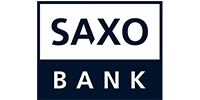
SAXO BANK
Saxo Bank is a well-established, low-risk broker based in Denmark that offers a wide range of trading services to sophisticated traders, institutions, and professional investors. It operates under strict regulatory oversight, ensuring a secure trading environment. The broker provides advanced trading platforms, including SaxoTraderPRO and SaxoTraderGO, catering to high-volume and professional traders with competitive spreads and access to over 71,000 instruments.
Why we chose Saxo Bank
For its comprehensive product range, spanning forex, commodities, indices, and popular CFDs. Such variety allows traders to build diversified portfolios within a single account. This breadth of markets supports evolving strategies and risk preferences.
| Broker Evaluation | 8.09 |
| Regulations | FCA |
| Minimum Deposit | $0 |
| Islamic Account | No |
| Payment Methods | Bank transfer, Credit Card |
| Main Branch | Copenhagen, Denmark |
| Customer Service | Market Opening Hours |
| Demo Account | Yes |
| Trading Platforms | SaxoTrader |
Pros
-
Extensive range of offerings.
-
Offers portfolio-based margin trading for pros.
-
Regulated by top regulators.
-
Excellent trading platforms.
-
Diverse account types.
-
Among the industry’s best research tools.
-
Offers protection for client accounts.
-
No inactivity fee.
-
No platform fees.
-
No minimum funding for entry-level accounts.
Cons
-
Some bonds, options, and futures fees are high.
-
With so many assets, fees can be confusing.
-
High minimum deposit for Platinum and VIP accounts.
-
Does not accept US clients.
-
No MT4 for traders who are used to the platform.
-
No GSLO.
-
No Islamic accounts.
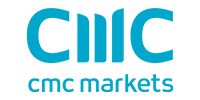
CMC MARKETS
CMC Markets is a global CFD and FOREX broker established in 1989. It is regulated by several authorities globally. The company delivers a formidable offering for traders thanks to excellent pricing, nearly 12,000 tradable instruments, and its proprietary Next Generation trading platform. The platform comes packed with quality research, innovative trading tools, and powerful charting. CMC provides traders with access to an extensive range of CFDs and spread betting across several asset classes.
Why we chose CMC Markets
This broker’s risk management tools and flexible order types stood out to us, enabling traders to tailor positions according to market conditions. Features like stop losses, take profits, and conditional orders provide strategic control. These tools are essential for disciplined trading.
| Broker Evaluation | 8.07 |
| Regulations | FCA |
| Minimum Deposit | 0$ |
| Islamic Account | No |
| Payment Methods | Bank transfer, Credit Card, Electronic Banks |
| Main Branch | United Kingdom |
| Customer Service | Market Opening Hours |
| Demo Account | Yes |
| Trading Platforms | Proprietary Platform, MT4, Web Platform |
Pros
-
Extensive range of offerings.
-
Regulated by the FCA (UK) and other top regulators.
-
Low FOREX fees.
-
Emphasis on education and customer service.
-
Great Web and mobile platforms.
-
Offers protection for client accounts.
-
Research amenities are industry leading.
Cons
-
Does not accept US clients.
-
High CFD spreads for certain indices.
-
It only offers CFD trading, so traders cannot own the underlying asset.
-
Does not support deposits and withdrawals through electronic payments.

think markets
ThinkMarkets is a multi-regulated broker with offices around the globe. The firm is primarily a CFD broker, allowing you to trade across 4,000 instruments in FOREX, futures, commodities, indices, ETFs, crypto, and stocks. With an emphasis on superior customer service, ThinkMarkets maintains round-the-clock support in several languages. It provides different trading accounts suited to individual traders' needs. This includes zero-commission accounts and access to trading guides, analysis tools, and industry news feeds.
Why we chose ThinkMarkets
We selected this broker for its fast and flexible funding options, including bank transfers and card payments. Smooth deposits and withdrawals reduce administrative delays and support efficient capital management. Accessibility of funds is an often-overlooked but essential feature.
| Broker Evaluation | 8.05 |
| Regulations | FCA |
| Minimum Deposit | $0 |
| Islamic Account | Yes |
| Payment Methods | Bank transfer - credit card - Electronic Banks - Crypto |
| Main Branch | Australia |
| Customer Service | Market Opening Hours |
| Demo Account | Yes |
| Trading Platforms | Proprietary Platform, Web Platform, MT4, MT5 |
Pros
-
Beginner assistance is offered through round-the-clock channels.
-
Spreads are as low as 0.0 pips.
-
Round-the-clock expert customer service.
-
CFD shares and indices come at no extra fee.
-
Zero broker fees for FOREX trading.
-
Technical analysis and quality market information.
Cons
-
No binary options are offered.
-
Commissions are charged for two account types.
-
Range of tradeable assets is not as wide as some competitors.
-
No US clients allowed.
There is a high degree of risk involved in trading securities like FOREX, or CFDs, which are highly complex instruments. As a trader, you could be exposed to excessive leverage, questionable broker tactics, market volatility, and limited regulatory protection. Despite your best trading techniques and risk management strategies, your efforts may not be profitable, and you could suffer losses.
What is MetaTrader?
MetaTrader, owned by MetaQuotes Software Corp, is a long-established software platform used for trading various financial instruments. It made its name in the FOREX game and has become synonymous with this financial asset, though it has expanded its reach into assets like stocks and commodities.
MetaTrader platforms come in two forms. You can read our in-depth comparison of the two platforms here. MT4 was released in 2005 and has for many years been the gold standard of FOREX trading platforms, beating off competition from the likes of cTrader and NinjaTrader. MT5 was released in 2010 as a multi-asset platform that is not the successor of MT4, but merely another product in the family.
Both platforms offer a vast array of tools and features for traders to study the markets and carry out trades. The best-known and most useful tools include customizable charts, technical indicators, automated trading robots, and excellent backtesting. Both MetaTrader platforms are household names and are rightly favored by retail traders new and old, as well as by brokers and financial institutions.
Do I Need a Broker to Use MetaTrader?
In short, yes. To be able to use MT4 or MT5 to trade financial instruments, you must have an account with a broker that supports the platform. MetaTrader is a third-party software and does not offer retail traders direct access to the financial markets. For this reason, you cannot use MetaTrader on your own to place trades.
Choosing the best broker for your needs is a big decision when starting to trade, as there are many different types of brokers, not all of whom may be what you require. To help you out, we've written an article about what to think about when you must choose a broker. Once you've opened an account with a broker, they will provide you with login credentials that you can use to access their trading platform through MetaTrader. You can then use MetaTrader to trade the markets and manage your positions.
You should know that not all brokers offer MetaTrader as a trading platform option. Seeking independence, many brokers have developed their own trading software as part of their strategy to differentiate themselves from MT4- and MT5-reliant brokers. Some brokers use competitor third-party platforms like cTrader and NinjaTrader, or even their own in-house software. If you want to use MetaTrader, make sure that before you open an account, the broker you are considering offers the platform.
Is MetaTrader Safe?
Regulation and Licensing
Ensure that a reputable authority regulates your chosen broker. FOREX brokers that use MetaTrader tools must be regulated by the same regulators that regulate other financial assets, such as crypto, commodities, and indices. If you want to learn more about some of the best-regarded regulators, read our article on regulation here. Remember that you do not have to use a broker with international regulation if your local broker is regulated by a solid local regulator. Here is a list of major reasons your broker must be regulated:
Safety of funds:
A regulated broker must comply with strict regulations to protect client funds, including segregating client funds from the company's own funds.
Fair trading practices:
A regulated company must adhere to strict guidelines ensuring products and services are offered fairly and without manipulation, helping create a level playing field for all clients.
Transparency:
The law compels regulated brokers to be transparent with clients, which assures you of safe, fair trading. In practice, this looks like brokers admitting openly that FOREX trading is highly risky and you could lose your money.
Protection from fraud:
Regulatory authorities protect clients from fraudulent activities and scams and also ensure that FOREX brokers operate within set guidelines that safeguard their clients' interests.
The choice of a regulated broker isn't merely a matter of preference—it's a protective measure. When a broker is regulated, it undergoes stringent assessments to ensure transparency, fair trading practices, and your financial security. Opting for an unregulated broker brings with it significant risks. For a list of the best regulators, read our article here.
Leverage
Leverage is a powerful tool in trading where your broker basically lends you money to open bigger positions than you would have been able to with your own capital. Brokers in certain markets can offer you leverage as high as 500:1. Depending on the regulator that your broker works under, you will encounter different policies relative to leverage. Key regulators have implemented specific rules to limit the leverage offered to retail traders as a means of consumer protection.
Here are selected leverage rules according to some major regulators:
Financial Conduct Authority (FCA) UK:
30:1 for major currency pairs
20:1 for non-major currency pairs, gold, and major indices
10:1 for commodities (excluding gold) and non-major equity indices
5:1 for individual equities and other reference values
2:1 for cryptocurrencies
These limits are in place to reduce the risk of significant losses for retail traders.
Australian Securities and Investments Commission (ASIC) Australia:
30:1 for major currency pairs
20:1 for non-major currency pairs, gold, and major stock market indices
10:1 for commodities other than gold and minor stock market indices
5:1 for equities (stocks) and other underlying assets
2:1 for cryptocurrencies
Swiss Financial Market Supervisory Authority (FINMA) Switzerland:
FINMA has not set specific leverage limits like the FCA or ASIC. However, Swiss brokers must adhere to rigorous capital and risk management requirements, ensuring they don't offer excessively high leverage that could endanger their solvency or their clients' funds.
Commodity Futures Trading Commission (CFTC) USA:
The CFTC enforces a 50:1 leverage limit on major currency pairs and a 20:1 limit on non-major currency pairs for retail FOREX traders.
The U.S. has a distinct regulatory environment, with retail FOREX trading regulated separately from other forms of derivatives trading.
It's worth noting that these rules generally apply to retail clients. Professional or institutional clients might have access to different levels of leverage, depending on the regulatory environment and the broker's policies. As we can see, responsible regulators closely monitor leverage levels. Leverage is a double-edged sword because you can make a lot of money, but you can just as easily become financially ruined!
High leverage can amplify potential profits, but it equally magnifies potential losses. It can put a stop to your trading career if not used carefully. The allure of high returns is tempting, but the risk associated with such strategies is highly dangerous. We strongly urge traders to approach leverage with caution, fully grasping its mechanics and implications.
Stop out
The term "stop out" refers to an undesirable situation where a broker automatically closes some or all of your open positions to prevent your account from going into a negative balance. This is most relevant for traders using leverage. The stop-out level is typically expressed as a percentage, representing the margin level at which the broker starts to close out open trades.
Stop out of 0%:
Your broker will not automatically close any of your open positions, even if your margin level falls to 0%. This is because some brokers allow traders to have negative balances, which means that you could owe the broker money if your trades continue to lose money
Stop out of 50%:
Once your equity falls to 50% of your used margin, a stop out will be triggered, and your broker will automatically start closing out your trades, starting with the most unprofitable one, until your margin level is back above the stop-out level.
Stop out of 100%:
Your broker will automatically close all of your open positions once your margin level falls to 100%. In a trading scenario where the broker operates with a separate margin-call level and stop-out level, the broker defines the margin-call level at 100% and the stop-out level at 50%. If your margin level falls to 50%, your trading platform will automatically execute a stop out, and your trade will be automatically closed at market price
You should know that the specific percentage and the order in which positions are closed can vary among brokers, so it's essential for traders to be aware of their broker's policy on stop-out levels.
It's worth noting that while stop-out procedures are meant to protect you from negative balances, they can lead to significant losses in volatile markets if positions are closed automatically. This is especially true if the market quickly reverses after the stop out. Therefore, using protective measures like stop-loss orders and not over-leveraging is always a good way to go.
Why MetaTrader’s Tools and Features Stand Out
The best retail broker is the one that fits your trading style and goals. Check how much they charge in spreads and commissions, and make sure they’re licensed by a top-tier regulator. Look for fast execution and platforms that are easy to use on mobile. Above all, test their customer support before funding your account.
- Technical Analysis Tools. The platform should be equipped with robust technical indicators to aid traders in making informed decisions.
- Customization and User Interface. Traders need to mold the platform according to their preferences, allowing them to set up their trading environment precisely how they want. The MetaTrader suite offers excellent features for you to do this.
- Platform Accessibility is a big consideration. Whether it's web-based or a downloadable application, a top-notch trading platform should offer flexibility in terms of access.
- Risk-Management Tools are another pivotal aspect. Trading inherently comes with risks, and a high-quality platform should provide instruments that allow traders to set stop-losses, take-profits, and other crucial order types.
- Performance and Reliability cannot be overlooked. Beginner traders especially need a platform that operates seamlessly with minimal downtimes or glitches. This ensures a smooth trading journey, allowing them to focus on market movements rather than technical hiccups.
- Learning and Educational Resources are essential. The best brokers will offer platforms that are not only intuitive but also come with tutorials, guides, and responsive customer support to assist traders in navigating any challenges they might face.
How Can I Connect My Account to MetaTrader?
How To Use MetaTrader
- Download and install the MetaTrader platform from your broker's website. You can work on the platform via a web page, a downloadable desktop application, or a mobile interface.
- Log into MetaTrader using the account credentials provided by your broker.
- Familiarize yourself with the MetaTrader interface, including the various windows and tabs, charts and indicators. This is a highly customizable product whose layout you can adjust to suit your personal preferences.
- To place a trade, open a chart for the currency pair you want to trade, and then select “New Order” from the “Trade” tab or right-click on the chart and select “Trading” > “New Order.”
- In the “New Order” window, choose your trade volume, stop-loss, and take-profit levels, and then select the trade direction (buy or sell). When you have filled in all the required information, you can click “Buy” or “Sell” to place the trade.
- To manage your trades, use the “Trade” tab to view your open positions, modify orders or close trades.
- Use the “Terminal” window to get a high level view of your account balance, trading history and other account details.
- You can also use various tools and indicators available in MetaTrader to study the markets and make the best trading decisions.
Video Explaining How to Use MT4 and MT5

Tip: Invest in Your knowledge
For every aspiring retail trader, knowledge is key to a successful trading journey. We invite you to delve into Arincen's goldmine of insights, strategies, and expert analyses. Whether you're just embarking on your trading venture or trying to level up your trading game, our resources are designed to give you all the information you need. Visit our educational resources here.
Recommended Brokers
How Does MetaTrader Compare with Other Third-Party Trading Platforms?
cTrader
NinjaTrader
ProRealTime
What Is the Difference Between MT4 and MT5?
MT4 predates MT5 and they share many aesthetic and functional similarities, but there are some key differences between them:
Asset classes: MT4 is mainly used for FOREX trading, while MT5 supports trading of FOREX as well as additional asset classes, such as stocks, futures, and commodities. As a FOREX trader, you can use MT4 and have all your FOREX trading needs taken care of.
Programming languages: MT4 uses the MQL4 programming language, while MT5 uses the more advanced MQL5 language. This means that MT5 allows for more complex trading strategies and indicators to be created. However, do not think this means MT4 is on the way out. There is no intention of doing away with the product, despite its older programming language.
Hedging: MT4 allows traders to use hedging strategies by opening multiple positions in the same currency pair in opposite directions. In MT5, hedging is allowed, but the platform may encourage you to rather use netting, which is a more efficient system for the platform to accommodate open positions in the same direction to be consolidated into a single position.
Market depth: MT5 has a built-in depth-of-market feature that allows traders to view the current bid and ask prices, as well as the liquidity available at each price level. This feature is not available in MT4. That said, MT5 is a purpose-built multi-asset platform, while MT4 has never strayed too far away from its FOREX roots.
User interface: The user interface in MT5 is more pleasing to the eye and customizable than MT4, with such additional features as multiple chart templates and the ability to open multiple windows within the platform.
While more traders use MT4, MT5 offers more advanced features and greater flexibility for traders looking for a multi-asset platform. However, the choice between the two platforms ultimately depends on your trading style and the asset classes you want to trade. For more information about the difference between MT4 and MT5 click here.
Tradable Assets and Instruments
- FOREX
- Commodities
- CFDs
- Equities or Stocks
- Indices
- Cryptocurrencies
- Bonds
- Options and Futures
As part of our evaluation process, the Arincen team gathered and cross-checked broker pricing from official documentation and live trading environments. This approach allowed us to compare spreads, commissions, and fees under actual market conditions. The breakdown of our findings is presented in the table that follows.
| Brokers | Currency pairs | Stocks | Indices | Commodities | Crypto | ETFs |
| Tradview | 80 Pairs | 5000 Shares | 10 Indices | 10 Commodity | 30 Coins | Unavailable |
| ICM Capital | 67 Pairs | 89 Shares | 17 Indices | 12 Commodity | 6 Coins | Unavailable |
| XTB | 57 Pairs | 1848 Shares | 36 Indices | 22 Commodity | 22 Coins | 135 ETFs |
| IG | 81 Pairs | 21714 Shares | 49 Indices | 39 Commodity | 11 Coins | 12858 ETFs |
| Saxo Bank | 320 Pairs | 22000 Shares | 49 Indices | 39 Commodity | 9 Coins | 6700 ETFs |
| CMC Markets | 330 Pairs | 8000 Shares | 80 Indices | 100 Commodity | 18 Coins | 200 ETFs |
| Think Markets | 46 Pairs | 3750 Shares | 15 Indices | 11 Commodity | 21 Coins | 350 ETFs |
What is the Best Broker for MT4?
What is the Best Broker for MT5?
We analyzed a vast MetaTrader 5 broker list. MT5 is much used in trading circles. You can find any number of brokers that integrate this software in their product offering. However, as a starting point, you will not go wrong by using ICM. This broker is the best FOREX broker for MetaTrader 5 and offers diversified traders like you the widest range of financial assets available. ICM offers a vast array of tradable assets, many of which can be traded on MT5.
Does MetaTrader Need a Subscription?
Our pricing review draws on Arincen’s independent research, where we analysed broker cost structures using both advertized rates and real-world trading data. By comparing spreads, commissions, and related fees, we aimed to reflect what traders are likely to experience. The outcome of this assessment is displayed in the table below.







| Method | Credit Card | Wire Transfer | Skrill | Neteller | Cryptocurrency | PayPal |
| Deposit fee | 0$ | $0 + Bank commission | 1.9% | 2.5% | Unavailable | 3.75% |
| Withdrawal fee | 0$ | $15 | 1% | $0 | Unavailable | 2% |
Does MetaTrader Add Additional Costs to My Positions?
MetaTrader itself does not add any costs to your trading positions. However, the costs associated with your trading positions will depend on several factors, including the type of financial instrument you are trading, the broker you are using and the prevailing market conditions when you enter and exit your positions. There are several costs that can be relevant when trading, including:
Spread: This is the difference between the bid and ask prices of the financial instrument you are trading. It represents the cost of entering a trade and varies depending on the broker and the market conditions.
Commission: Some brokers may charge a commission for each trade you make in addition to the spread.
Overnight swap fees: If you hold a position overnight, some brokers may charge a fee or credit your account with an amount based on the interest rate differential between the currencies involved in the trade.
Slippage: This happens when the price at which your trade is executed differs from the price you intended to enter or exit the trade. This can lead to extra costs or losses.
It is important to understand the costs associated with trading and to factor them into your trading strategy and risk management plan. MetaTrader itself does not add any extra costs to your trades. As we have shown, your broker may use one or more of the costs associated with FOREX trading to levy a fee while you are using MetaTrader products. Be sure to review your broker's fee schedule and trading terms and conditions before opening an account.Other Fees
Besides the fees we have discussed above, don’t forget the following:
Withdrawal and Deposit Fees: Some platforms might charge fees for depositing or withdrawing funds. Pay attention to this. It's important to be aware of these and any associated limits or conditions.
Subscription or Inactivity Fees: Certain platforms have monthly charges or fees for inactive accounts. Ensure you're aware of these potential costs.
To assess trading costs accurately, the Arincen research team examined broker pricing across multiple sources, combining published fee schedules with observed trading conditions. Our analysis focuses on spreads, commissions, and additional charges that impact traders in practice. You can see the consolidated findings in the table that follows.







| Spread | Commission | Swap | Islamic Account | |
| Currencies | Starting from 1.3 Pips | 0$ | No | Available |
| Stocks | Starting from 18 Pips | 0$ | Yes | Unavailable |
| Commodities | Starting from 2.3 Pips | 0$ | No | Available |
| Indices | Starting from 4 Pips | 0$ | Yes | Unavailable |
Does MetaTrader Support Copy Trading?
Does MetaTrader Support Bot Trading?
Who is Arincen and What do We do?
The Bottom Line
Methodology
The team at Arincen collected more than 120 pieces of data covering more than 100 licensed FOREX companies. Data collection was done in three ways:
Companies’ Websites.
Other Websites that have ranked FOREX companies.
A survey questionnaire (referred to here as Survey “1”) was sent to the companies invited to participate in the exercise.
We have identified 12 criteria for our assessment, each containing several aspects and carrying its own relative weight. These include licensing, deposits and withdrawals, number of assets etc.
Afterwards, we validated the data by:
Registering with FOREX companies as a secret shopper and/or as Arincen.
Survey number “2,” in which we asked these companies’ customers for important feedback and experience.
The next step saw us evaluate and rank each company, relying on the hard work of 15 Arincen employees. We were careful in ensuring the most accurate assessment possible, including considering different languages, as well as the various mobile-app operating systems, e.g., Apple, Samsung etc.
To add credibility to our research project, we sent a final and third survey (referred to here as Survey “3”) to enable participating FOREX companies to evaluate our research and whether it accurately reflects the realities on the ground. We were fortunate enough to receive a mark of 9.9 out of 10! We have kept to a minimum the margin of error, which stood at a measly 1%. To learn more about how we came up with the evaluation, please click here.
Forex Risk Disclaimer
Trading foreign exchange on margin carries a high level of risk, and may not be suitable for all investors. The high degree of leverage can work against you as well as for you. Before deciding to trade foreign exchange you should carefully consider your investment objectives, level of experience, and risk appetite. The possibility exists that you could sustain a loss of some or all of your initial investment and therefore you should not invest money that you cannot afford to lose. You should be aware of all the risks associated with foreign exchange trading, and seek advice from an independent financial advisor if you have any doubts.
FAQ
The tax implications of trading profits made on MetaTrader (or any other trading platform) largely depend on the jurisdiction and its specific tax laws. In many countries, profits from trading (whether it's FOREX, CFDs, stocks, or other instruments) are subject to taxation. These can be classified as capital gains or business income based on the country's regulations. Always be sure to contact a tax professional to know where you stand.
MetaTrader is a trading platform designed for online trading in FOREX and other markets. It is widely used by retail traders to access various financial instruments. Besides FOREX, traders can access stocks and commodities on the platform.
You can download MetaTrader from the official website of the platform or from a broker who offers MT4 or MT5 for trading. Once downloaded, you can install the platform on your computer or mobile device. Do note that you need a brokerage account before you can trade.
EAs are automated trading programs that can be used with MetaTrader. They can execute trades automatically based on a set of predefined trading rules and parameters.
To fund your MetaTrader account, you need to deposit funds with a broker who offers the platform for trading. You can fund your account using various payment methods, such as bank transfer, credit/debit card, or online payment systems.
Yes, MetaTrader is available as a mobile application for iOS and Android devices. You can download the app from the app store on your mobile device and access your trading account from anywhere.

